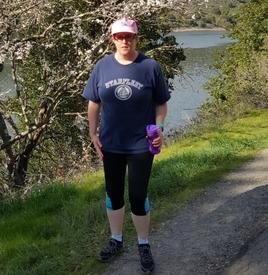low sodium diet

ellabtw
Posts: 2 Member
I was just diagnosed with a type of heart failure that can be helped a lot by limiting sodium intake to 2000 mg a day. Any one have any suggestions on how to cook tasty food without using a lot of salt?
0
Replies
-
My mom has kidney and heart failure, we've been on a low Sodom diet for a decade now.
1. Invest in some spices. Make sure they're fresh or freshly dried... Dried spices don't add much flavor when their too old.
2. Use no - sodium added chicken broth. It adds a lot of flavor
3. Use salt, but sparingly. Sometimes a little can go a long way. I like to add just a pinch of kosher salt when I use salt at all.
Stick it out. The first few weeks, but by six months "normal" foods will taste way to salty. Also, avoid boxes and processed meats, and use cheese as a garnish only. These things will up your sodium faster than you can blink.3 -
Also use No Salt. It's not salt, but it'll do. I do keep my sodium below 1500 mg each day. I have onion for flavor and low-sodium salsa with breakfast. I have lunch from the junk variety at work (they have lately been trying to meet my wishes). I cook my dinner vegetables and meat stir-fry with no salt and add ginger for spiciness. One of the worst offenders is chicken. The cheap frozen stuff is injected with 10% saline solution. Natural chicken and turkey can be gotten anywhere, but it's priced dearly. Unless a restaurant proclaims natural chicken, they're serving the injected stuff. Speaking of restaurants, the value proposition of every dish is the sauce, which is hyper salty, hyper sugary, and oh so good. Take that on the side and use sparingly. No croutons with salads, no salad dressings with salad except balsamic vinegar. You can't get low-sodium bread that's edible, so keep your bread servings low. Limit your cheese, because that is also richly salted.2
-
Exactly what tomteboda said! Now, when I eat out, most foods are too salty for me.
Remember that there's sodium hiding in sodas and processed foods, even in canned beans and soups, and other places where you wouldn't expect it.
I LOVE the McCormick's Salt Free All Purpose and their Salt Free Garlic Pepper. Not too fond of Mrs. Dash, except the Fiesta Lime, which is great on chicken and even on eggs. Also huge fan of Trader Joe's 21 Seasoning Salute. Look for herbs that can add a salty flavor without increasing sodium, like basil, or fresh peppers that can add spice. My other big go to for flavor is balsamic vinegar- I make marinades, reduction sauces, even just a sprinkle over bland veggies like cooked carrots.
After a few weeks, you'll start noticing that you're tasting more of the flavors of foods and not just the sodium on top. 3
3 -
I also need to eat a lower sodium diet, although I don't make my 1500 mark every day. In addition to the things mentioned above, watch out for Asian foods, even when cooking yourself. The soy sauce is killer. Choose fresh or frozen veggies over canned. Read food labels. Sometimes you're better off with the full-fat, full-calorie version of a food. The low-fat ones often have too much extra sugar and salt to make up for the taste. Many spices and veggies add lots of flavor so you don't miss the salt as much. Ginger has been mentioned, but also use garlic, bell pepper, onion, shallot, fresh cilantro (coriander), parsley, basil, fresh-ground pepper, and herb mixes. When I bake, if the recipe calls for baking soda (sodium bicarbonate) then I do NOT add the extra tsp of salt the recipe uses. It's not necessary. Good luck! Start with small changes to see what you like, and to help you stick with it.1
-
I have a salt shaker that's 50/50 salt and no salt for when I do need to add a little salty flavour to foods. I also use lemon juice wherever possible to replace the salt entirely.1
-
I never use salt, I just don't like it, but I do add plenty of black pepper and herbs when I cook. Our tastebuds quickly adapt to less salt once we start using less. The problem with sodium is that when we eat out we have no idea of how much sodium is in what we're eating.3
-
My doctor lowered mine to 2000. I'm not a great cook and had trouble with flavoring with herb seasonings unless I followed a recipe. But I can tell you how I lowered sodium in my life. Also, I must say that I love vegetables plain with nothing on it (unless it's a potato). This is what I did:
- Found chicken that isn't pumped with it. Mine is around 75g of sodium for 4oz. serving
- Made my own Cajun rub without salt (I like spice)
- Stayed away from pre-seasoned foods on a store shelf, freezer or refrigerated sections
- Stayed away from canned vegetables and aimed for fresh for frozen.
- Instead of canned beans, used dry beans
- Used old fashion oats instead of instant oats
- Made my own salad dressing
- Replace table salt with Kosher salt.*
*I had my sodium way too low at times (900-1400) so this allowed me to use an already made seasoning for meats. Or I threw some kosher salt into my morning oatmeal.
Your taste buds will change and you will taste the natural salt in everything soon therefore it wont be as challenging.
Good luck
2 -
Thank you for all the great suggestions..I had no idea that chicken was pumped with saline! I will definitely be more careful with that. I feel better already1
-
Sodium in frozen chicken breasts is nothing to worry about.
75 mg for a 4 oz piece.
And... it cooks out.
What you have to be mindful about is processed/packaged foods and fast food.
Ex: I have eaten a slice of pizza that had 900 mg of sodium.
Cooking at home is the way to go.2 -
For those using no salt-be very very careful if you have any kidney or heart disease. It contains potassium which you also have to watch.2
-
You're gonna have to make more stuff at home, and in general eat healthier all around. Most processed meats are out, and I'm specifically thinking lunch meat and sausage, as they are ridiculous. You'll have to look harder to find low sodium meats, but they are out there. I've even seen a ham roast that was about 150mg a serving. It tasted great too. When you buy something processed/boxed/canned, always get the low sodium version. I've found it often tastes better, due to being able to actually taste the food, rather than just salt. There's even low sodium soy sauce, and it's good stuff.
I don't have any health issues, but since I think sodium is every bit the killer that sugar is, I manage to keep mine around 1500mg a day, and I think I eat some great tasting food.0 -
I had to cut salt to lower blood pressure a few years ago (and probably always should as I tend to retain water a lot even when my blood pressure is fine. Anyway, what worked for me was the Dash diet. Some things that helped were spicier foods, lime squeezed on stuff (tastes a bit salty), and more cooking. Processed foods were just crazy. I can/could cook fresh and add a bit of salt for flavor much easier than eating the high sodium processed stuff without added salt.1
-
I stopped adding salt to my food when I found out I had chronic kidney disease. I also have high blood pressure. I used black pepper and other spices to my taste. I had to do some experimenting. I also try not to buy processed foods. They really are loaded with sodium. I'm trying to eat "clean" for health reasons. I love the foods that I eat even without adding salt.0
-
Also on the low sodium bandwagon: been cooking saltless for a lot of years now, dating back to when I had to do so for my parents. I try to keep sodium below 1200 a day. Agreed on the spices and seasonings (though I happen to like the Dashes). Also yes to acids, and to cooking with wine.
And definitely become a close and careful label reader when shopping. You'll be surprised at how much sodium you've been taking in! Good luck!0 -
Love all the suggestions above. I cook a lot more with garlic and onion. I buy unsalted butter for my cooking. I found that my vegetables must be fresh if I'm not hiding behind a salt shield, so I buy often and eat them up quickly. My tastes in vegetables quickly changed to the stronger flavoured ones like parsnips.0
-
#1 rule is: do not salt your food before tasting.
Buy as few convenience foods as possible. Even things like deli meats can have as much as 600 mg of sodium per 2 oz serving. If you like deli meat and have the budget for it, get Boars Head (their no sodium added turkey breast is only 55 mg per serving and they have a roast beef that is only 80 mg). Otherwise, buy meat and roast and slice it yourself for sandwiches. Same thing for meals. Buy individual ingredients and make them yourself.
Invest in a decent selection of individual herbs and spices. Most seasoning blends are made with salt and are really easy to duplicate.
Many, many seasonings can be mixed yourself without salt. I make my own taco seasoning mix (12 mg per packet as opposed to Old El Paso 1800 mg per packet). I also make my own sesame ginger stir fry sauce. There are recipes all over the internet for all kinds of these things.
Limit your use of condiments like soy, teriyaki, ketchup etc. If you are used to just shaking how much you want, measure.
Unless you are in the 2% of the population who have a known sensitivity, don't be afraid of MSG. It can heighten the flavor of many foods without the high sodium content (many low sodium soup bases and condiments are made with it). If you ARE sensitive, don't eat foods with naturally occurring MSG like tomatoes and tomato juice, grapes and grape juice, other fruit juices, potatoes, peas, or mushrooms.
I have cut down my sodium quite a bit over the years. I started doing it in college because of significant PMS bloating. I now do it because I do not like the taste of salty foods (except popcorn . . . needs lots of butter and salt).0 -
Not sure if anyone said this yet, but try using lemon instead of salt!0
-
Hi
After decades of salting the heck out of foods I went to no salt on anything. Now I do not miss it and salted foods taste way to salty where they used to taste Great.
You will get used to it.
Good Luck
Roger0
This discussion has been closed.
Categories
- All Categories
- 1.4M Health, Wellness and Goals
- 398.2K Introduce Yourself
- 44.7K Getting Started
- 261K Health and Weight Loss
- 176.4K Food and Nutrition
- 47.7K Recipes
- 233K Fitness and Exercise
- 462 Sleep, Mindfulness and Overall Wellness
- 6.5K Goal: Maintaining Weight
- 8.7K Goal: Gaining Weight and Body Building
- 153.5K Motivation and Support
- 8.4K Challenges
- 1.4K Debate Club
- 96.5K Chit-Chat
- 2.6K Fun and Games
- 4.8K MyFitnessPal Information
- 13 News and Announcements
- 21 MyFitnessPal Academy
- 1.6K Feature Suggestions and Ideas
- 3.2K MyFitnessPal Tech Support Questions















